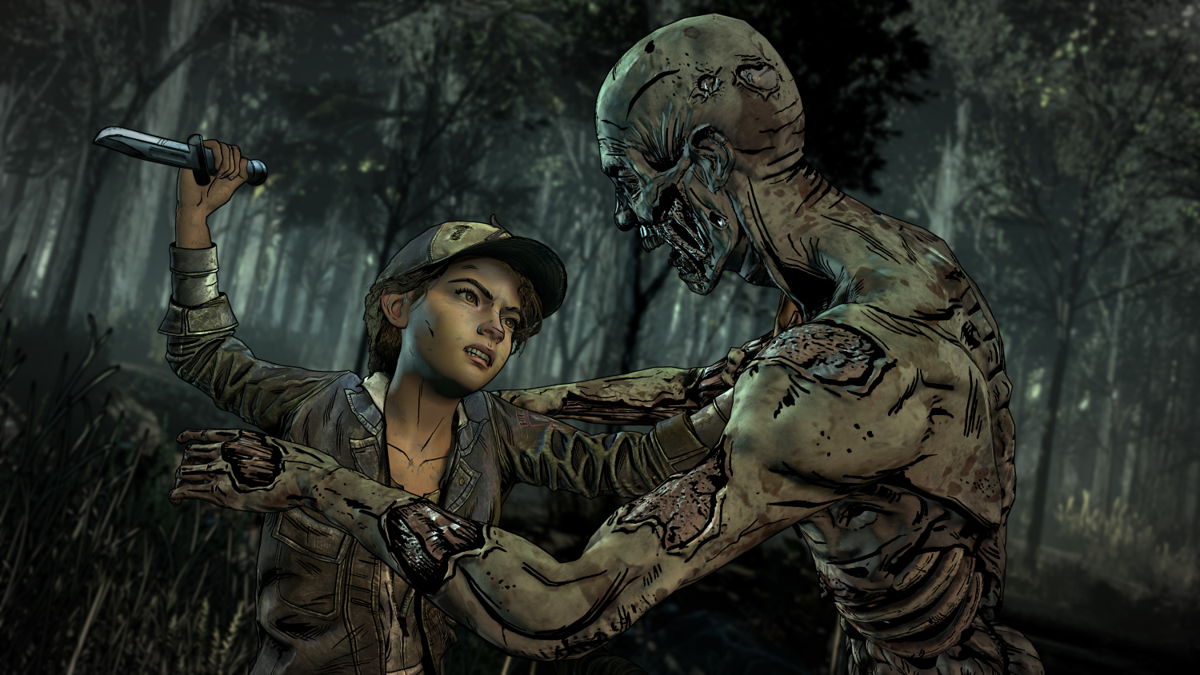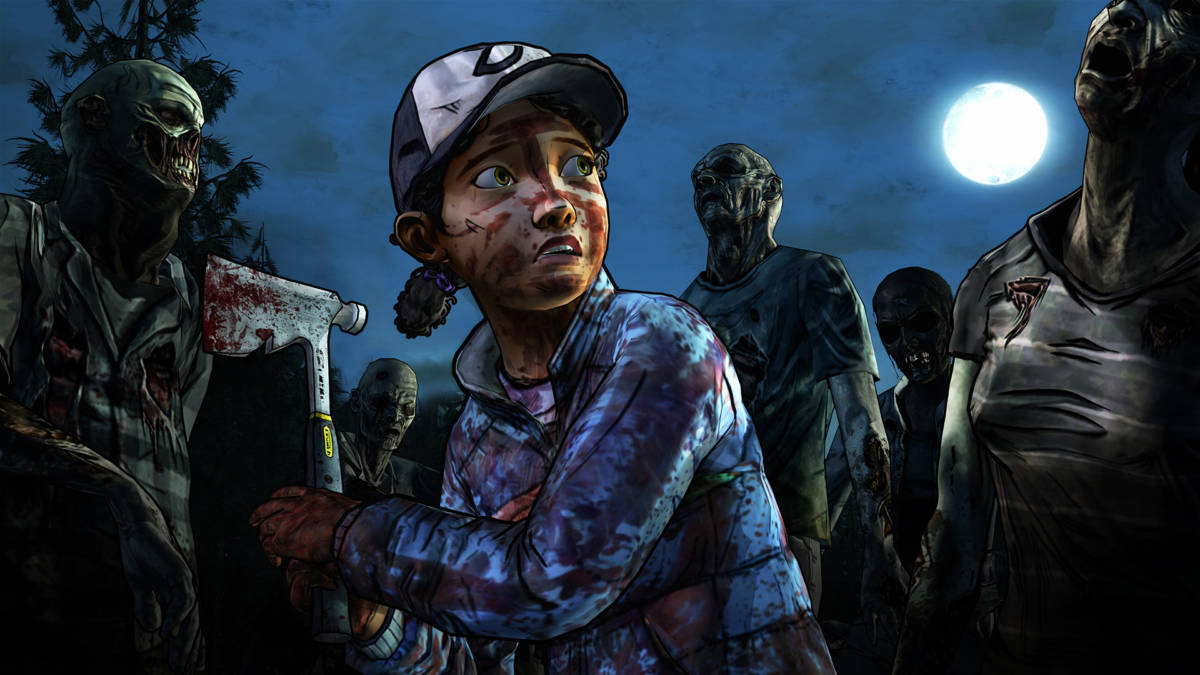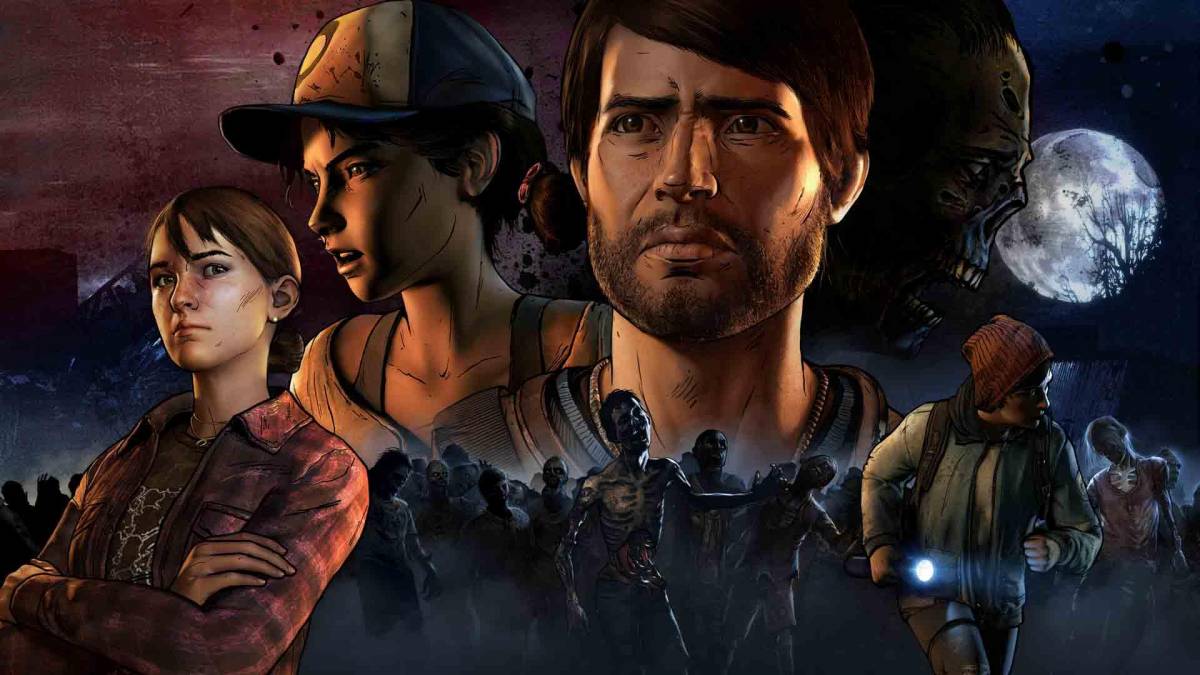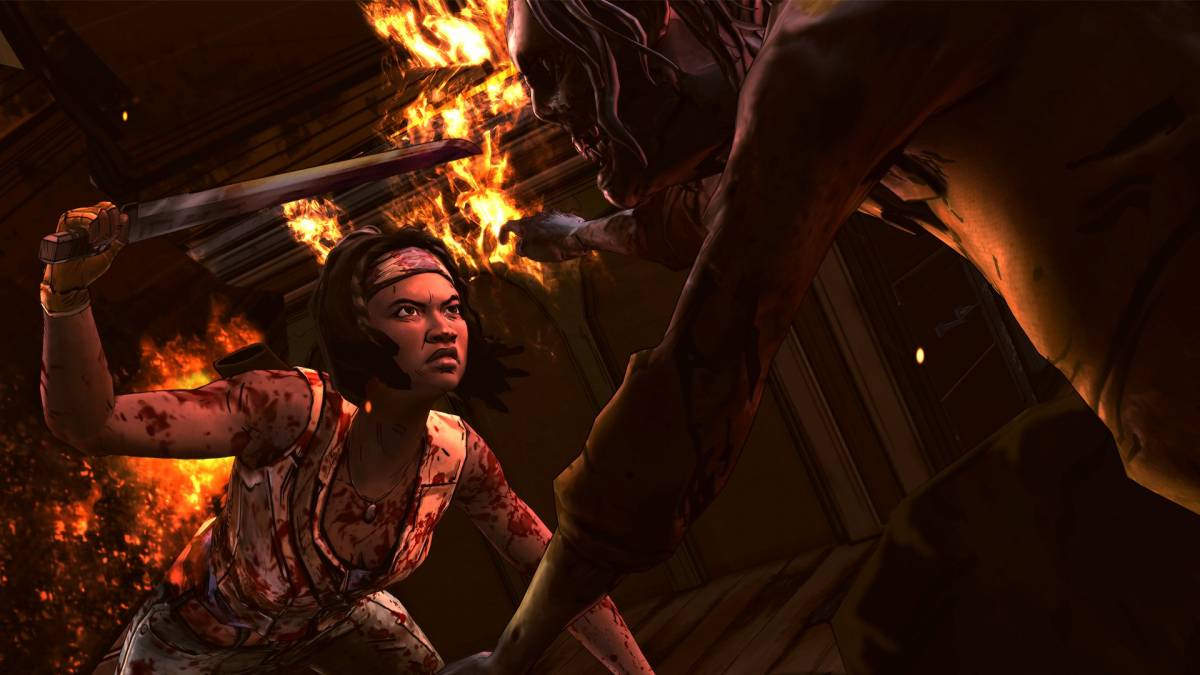Telltale’s The Walking Dead and I have been on a long road together. We’ve lost many friends along the way, I’ve put on many pounds, and the end is just about to begin, six years after we first fell in love. Even Telltale themselves probably couldn’t have imagined what a success it would go on to become, the flagship for their brand and effectively the enabler for them to take on bigger licenses.
However, with adaptations like Game of Thrones and Tales From The Borderlands falling by the wayside, The Walking Dead stands tall. It’s fitting, then, that The Walking Dead: The Final Season not only marks the last hurrah for Clementine and co., but it’s also a bon voyage to their Telltale Tool engine as they look to pivot to a new approach to making games after falling into a sticky patch.
The signs are already there in The Final Season that Telltale are looking to broaden their horizons and create more interactive experiences with a greater emphasis on player choice that extends beyond just dialogue trees. As excited as I am to see this all develop in the first episode, I’m still hesitant to play it just because I know that the ship will begin to sail on a franchise that I love so dearly.
To prepare myself for the long goodbye, I recently played through the entirety of The Walking Dead Collection on PS4, which is free to those who pre-order The Final Season on PS4 and Xbox One. Here’s what I thought of each morsel of The Walking Dead in the order in which I played them.
The Walking Dead: Season One
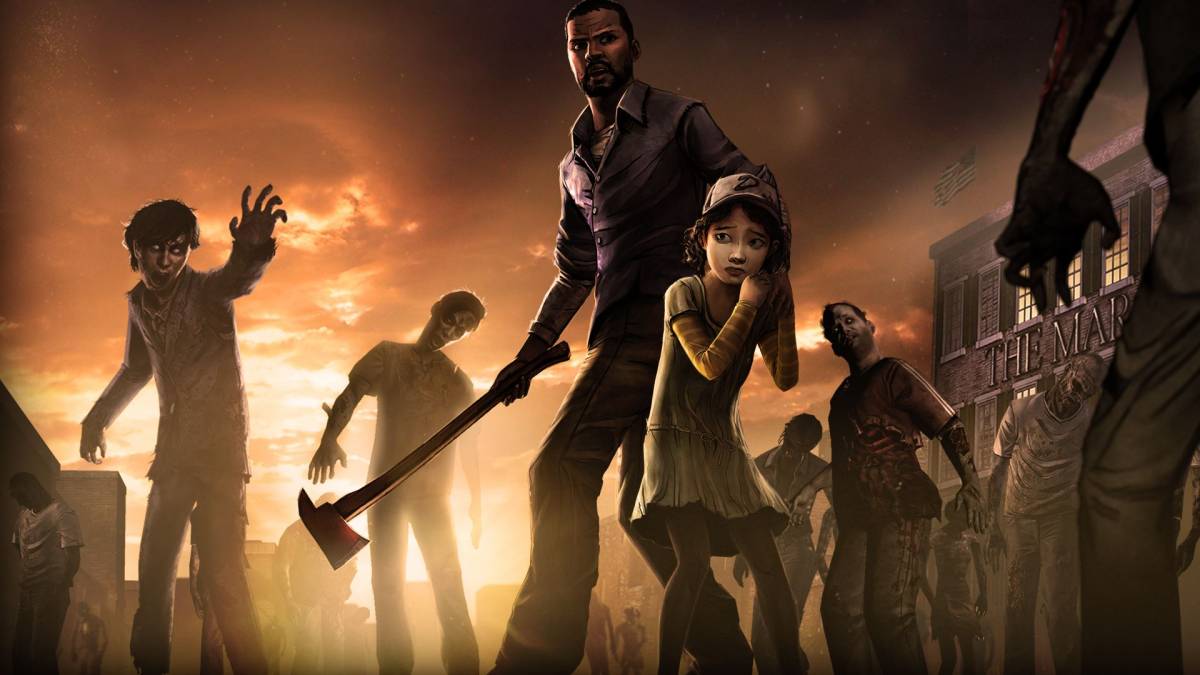
Of all the games in the collection, Season One needed the spit polish the most. Almost every game looks a little tired when it’s past the half-decade point so the first adventure of Clementine felt revitalised by being remastered for this bundle. Truthfully, even if Lee glitched out and turned into a balloon, I’d still feel totally immersed all the way through.
Season One represents itself as the best that The Walking Dead has to offer for not only having the strongest writing and tightest pacing, but also for allowing more freedom in movement than other games. Lee can explore his environments and interact with items as well as other people a great deal more than characters can in later seasons, which became more and more focused on QTEs.
I couldn’t bring myself to make any different decisions to the ones I did the first time around: Carley over Doug, Lily walks a lonely road, fuck Ben off as soon as possible, keep that hair short. And I still, despite harnessing my inner Kurt Russell in Roadhouse, welled up at the painful goodbye to the best and, most importantly, human video game protagonist I’ve ever had the pleasure of playing as.
The Walking Dead: 400 Days
What a waste. 400 Days had great potential to allow Telltale to flex their muscles, to show just how deeply your decisions could change the course of later seasons. Apart from the appearance of Bonnie as an important character, the survivors from the DLC just turned up as cameos in Carver’s complex.
It’s a shame, because there is some good stuff in 400 Days. None of the stories dwell on just the one character for too long, just long enough to be introduced to their character and for Telltale to test new ideas for their next season. The best sections of 400 Days still belong to Shel, Vince, and Wyatt, with Vince’s story involving a shotgun and a chain remaining probably the most memorable.
There’s still time to re-introduce the 400 Days into The Final Season, though it’s hard to imagine where exactly with it having a shorter run of four episodes. While it’s a neat addition to the franchise that does its job, 400 Days could have been so much more.
The Walking Dead: Season Two
I always somewhat resented Season Two for never giving a Platinum trophy for completing it, especially after all the hell it had subjected Clementine to. While she was no longer the trembling mess of the first season, Clementine was still too young for the turmoil she was exposed to over five episodes, but that’s the whole point: there are no children in The Walking Dead.
This is evidenced by Sarah, who’s naive to the point of parody. She’s part of a group of survivors who’ve fled their tormentor. Carver, played perfectly by Michael Madsen, is an excellent bad guy, though his reign of terror really should have stretched the full five episodes rather than substituting him almost immediately for Kenny. It makes sense, though: seeing Kenny’s descent into madness is just as upsetting as it is unsettling.
Season Two embraces the QTEs and a more cinematic feel than the first season, though its pacing doesn’t feel that tight. Some episodes sag while others zip by. Still, if it’s character development you want, Season Two is arguably The Walking Dead’s brightest spark in that regard. I left Kenny at the gates to Wellington and also some tears may have left my eyes but that could also just have been condensation on the brain, who knows.
The Walking Dead: A New Frontier
Here’s a secret for you: I actually love A New Frontier. An unpopular opinion that surely disqualifies any others I may have about the franchise in the eyes of many, but I’m sticking by it. Clementine taking a backseat to allow new characters to come to the fore just makes sense — her arc was at a crossroads and there’s only so much pain you can ask a young girl to withstand in one franchise.
Javi is no Lee, but he’s as close as anyone’s come so far — Luke had a chance, but he was always going to go out the way he did. He’s not perfect, either, and while he may not have murdered his wife’s lover, he was a narcissist who threw away his career and shut out his family. A New Frontier shows him growing as a person by protecting his family, his brother’s wife and kids.
When the brother, David, almost inevitably returns to the fold, A New Frontier comes to life. The tough decisions to follow are obvious to anyone who’s ever played The Walking Dead, though that doesn’t stop them from being just as difficult and guilt-inducing as always.
However, A New Frontier is not perfect and perhaps symptomatic of some complacency on Telltale’s part. It’s the least interactive of the seasons by far — there are long stretches of nothing apart from button prompts. If they could have embraced the sense of freedom of the first season, I have no doubt that A New Frontier would have been beloved by a lot more fans than it was.
Oh, wait, I forgot about the flashbacks. Yeah, that was bad.
The Walking Dead: Michonne
An oddity in The Walking Dead franchise as it’s only tentatively connected to the rest of the seasons, I actually never finished Michonne the first time around. There just wasn’t that hook or tension with it being part of the comics’ chronology after which Michonne is very much alive. It felt like a weird vacation for the fan favourite that I wasn’t all that compelled by.
While I’d struggle to say that I fell head over heels in love with it, giving Michonne a second chance did endear it a lot more to me. Samira Wiley is superb as the titular character, as well as the Fairbanks family offering a much needed touch of humanity in-between nautical genocide. It also precluded the style later included in A New Frontier with a more “in your face” aesthetic for QTEs; I’ll leave that up to you to decide if it’s a good thing.
Coming in at three episodes, Michonne is fun but largely inconsequential to the franchise. Once The Final Season is over, I wouldn’t at all mind a return to Michonne’s world for another spin-off run or, hell, if it’s wish fulfilment we’re talking about, a concluding chapter for the Garcia family.
Some of the coverage you find on Cultured Vultures contains affiliate links, which provide us with small commissions based on purchases made from visiting our site. We cover gaming news, movie reviews, wrestling and much more.


